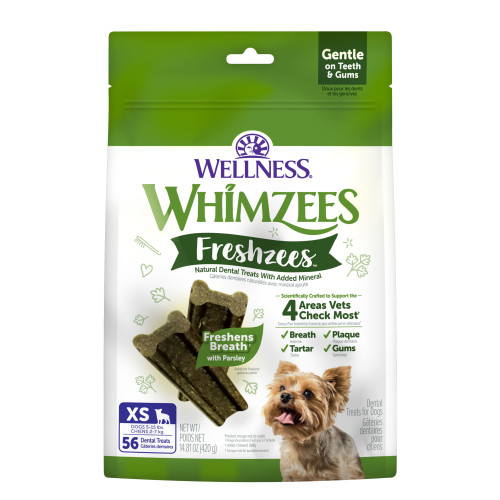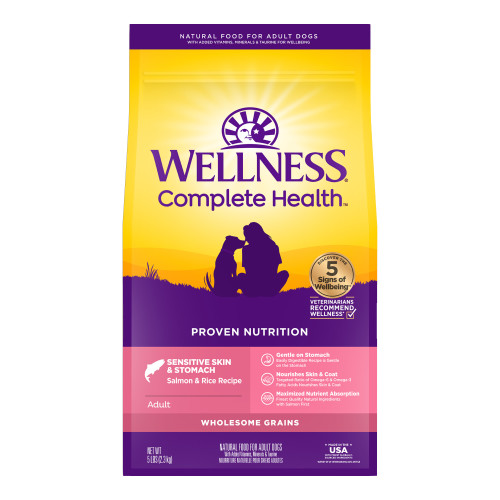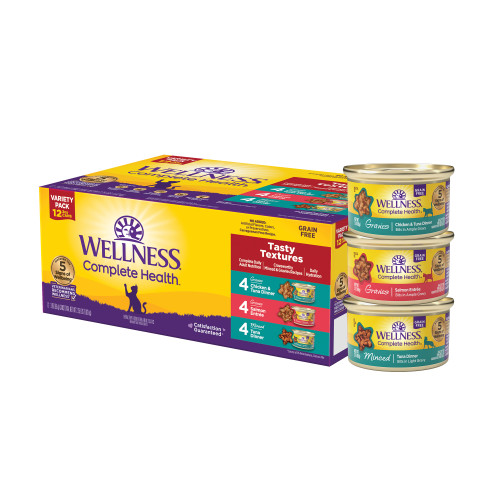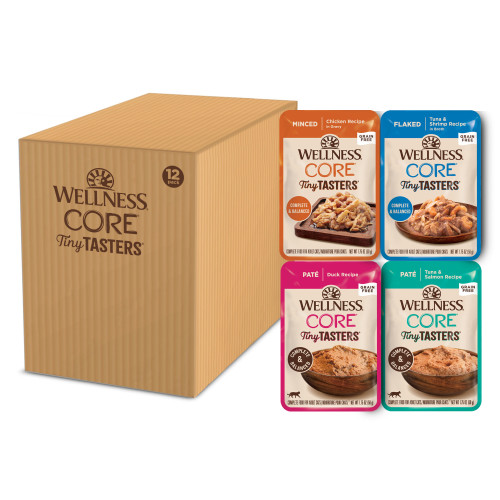November 5, 2020
How to Properly Feed a Puppy
How Much To Properly Feed A Puppy
Getting a new puppy is so exciting! Puppies are warm and cuddly and furry. They are so charming. Of course, they are also so helpless, which means you are in charge of ensuring their nutritional needs are met. Puppies develop rapidly, so giving them the proper nutrition, especially in their first weeks, months, and year requires careful attention.
Weaning Your Puppy—Birth to 6 Weeks
If your puppy was birthed at home, then he will nurse from his mother for the first 6 to 8 weeks. It’s recommended puppies don’t start eating any other food until their caloric needs are no longer being met by their mother; this is typically at around 6 weeks. Many puppies are weaned by 6 weeks, but some still nurse until 8 weeks.
In some cases, your puppy’s birth mother might not be able to nurse for the first 4 to 6 weeks. If so, you will need to supplement with milk you purchase from your vet and with a dropper or a bottle for puppies. Regardless, once your puppy is weaned, it will be time to start with solid foods.
Feeding Your Puppy after Weaning—Weeks 6-12
After he has been weaned, your puppy will need to be fed a high-quality diet of pet food made especially for puppies. These foods contain more calories, protein, and calcium, essential for your puppy’s growth and development. Ask your veterinarian for to recommend the right plan for your pet and for specific breed-size recommendations regarding the feeding schedule.
Early Life Feeding Schedule—Three to Four Times a Day
- Puppies that are 6 to 9 weeks old should be fed a blend of dry food and milk replacer.
- At 9 to 10 weeks, large breed puppies typically should be off the milk replacer and eating dry food.
- At 12 to 13 weeks, small breed puppies typically should be off the milk replacer and eating only dry food.
- Note that you will want to feed your puppy at the same time every day to ensure they are getting the right amount of nutrition.
- Meal times should last 10 to 20 minutes to train your puppy not to linger.
Feeding Your Puppy—Months 3-6
At this stage, you will start to reduce your puppy’s feedings by one, so if you gave your puppy four feedings, you will reduce to three. By week 12, your puppy will start to lose some of his baby pudge.
The goal of properly feeding a puppy is to avoid excess weight as that will create health problems. If you are training your puppy using treats, you will need to factor that into your feeding plan in terms of the amount of food you give your puppy.
Transitioning to Adult Food—Months 7-16
At this stage, many puppies will reach maturity. For small breeds, dogs of 30 pounds or less, maturity occurs between months 10 and 12, typically.
Medium breeds of up to 80 pounds mature between 12 to 16 months.
Large breeds of over 80 pounds can actually take up to two years to mature.
When it comes time to transition your puppy to adult dog food, do so gradually over the course of a few days to avoid upsetting your maturing pet’s stomach. As when selecting a puppy food, it’s recommended that you consult your veterinarian to find a high-quality food product.
How Much to Feed Your Puppy Based on Weight
Your puppy’s health is the aim of following a feeding program; you can monitor your puppy’s weight by weighing yourself and then hold him when you weigh yourself. Subtract the difference to obtain your puppy’s weight. Use that information to determine how much to feed him.
- 5 pounds, ½ cup to 5/8 cup
- 10 pounds, ¾ cup to 1 cup
- 20 pounds, 1 ¼ cup to 1 ¾ cup
- 40 pounds, 2 ¼ cup to 3 cups
- 60 pounds, 3 cups to 4 cups
- 80 pounds, 3 2/3 cups to 5 cups
- 100 pounds, 4 ¼ cups to 6 cups
These are general guidelines, so refer to the bag of food that you are using to feed your puppy, as most have feeding charts on the label.
Importantly, when it comes to maintaining your puppy’s weight, avoid giving things like bones, table scraps, and other treats that are not nutrient rich. Your rapidly growing puppy needs these foods to have a healthy adulthood. You can provide that by following a feeding schedule with the correct amount of high-quality puppy food.
Consult your veterinarian and other resources during major developmental stages, which occur every few months in your puppy’s first year, to guarantee that your puppy is getting the healthy start he deserves.
High quality pet food is one of the most important factors in nourishing puppies in to strong, healthy adult dogs. Wellness Pet Food has multiple formulas specific to every dog’s age, size, and overall wellness because we agree that quality pet food makes all of the difference in a dog’s life.





